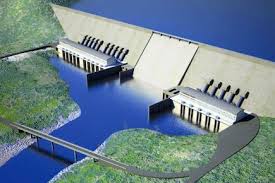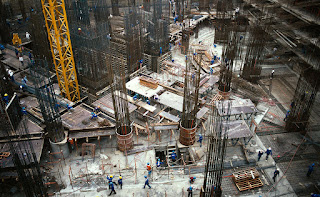Specializations in Civil Engineering
The purpose of Civil Engineers in society is that they coordinate the needs of society. Broadly when we talk about Civil Engineering, it is a response to what society wants or society needs. Civil Engineers coordinate the needs of society, they see what is required and make it happen within the limits; within the feasibility that is technical and economic. It is possible with the technology that we have here, it is possible with the resources that we have here, manpower or raw materials. We are going to look at what are the different specializations within Civil Engineering and what they cover and what the scope would be in each of these cases in brief.
Given below are the major specializations within Civil Engineering.
- Environmental Engineering
- Geo-technical Engineering
- Hydraulics and Water Resources Engineering
- Construction Materials and Technology
- Structural Engineering
- Transportation Engineering
- Construction Management
- Urban Planning
Environmental Engineering
The protection and improvement of the natural environment.
- Application of chemistry, biology and fluid mechanics in the design and operation of systems for providing drinking water and for the treatment of municipal and industrial wastes.
- Modelling and monitoring of the movement and behavior of the pollutants in the environment.
Based on:
- Chemistry (for understanding reactions and effects)
- Biology (for knowing the impact on living things)
- Mathematics (for modeling the responses)
- Design of waste treatment systems
- Study of pollution and its mitigation
- Assessment of environmental impact
Geo-technical Engineering
Understanding of Earth materials and the design of safe foundations of structures.
- Analysis of soil and rock behavior to design structures, pavements, underground facilities and containment structures for solid and liquid wastes.
- Design of foundations, retaining walls, tunnels etc
Based on:
- Mathematics (for modelling the response)
- Physics (for providing the fundamentals for soil mechanics and behavior and failure theories)
- Foundation design (for providing the safe bases for structures)
- Slope stability assessment
- Seismic Engineering
- Design of underground structures
Hydraulics and Water Resources Engineering
The application of computational techniques and fluid mechanics to the flow, control, collection and supply of water and other liquids.
- Design of hydraulic structures and machinery
- Study of rainfall and its flow and collection
- Prediction of storms and floods and mitigation of their impact
Based on:
- Mathematics (for modeling the responses)
- Physics (for providing the fundamentals)
- Fluid mechanics
- Hydrology
- Design of water supply networks
- Design of hydraulic structures
Construction Materials and Technology
Utilization of materials and equipment to implement the design of structures and other Civil Engineering projects and take care of their maintenance.
- Design of new materials and construction methods
- Improvement of the performance of materials
- Improvement of the quality of construction
Based on:
- Physics and chemistry (for providing the fundamentals of the behavior of materials)
- Understanding of the market and practice
- Architecture and building physics
- Building drawing
- Surveying
- Maintenance of facilities
Structural Engineering
The analysis and design of structures to resist loads and other actions, and to ensure their functionality.
Considerations of economics, aesthetics and social implications.
Based on:
- Mathematics (for modeling the response)
- Physics (for providing the fundamentals for mechanics and behavioral and failure theories)
- Structural analysis (for obtaining deformations and stresses)
- Structural design (for providing safe and usable structures)
Transportation Engineering
Planning, design and management of systems used for the movement of people and goods.
- Analysis of the movement of people and goods.
- Design of traffic management systems.
Based on:
- Mathematics (for modeling the traffic flow)
- Physics and chemistry (for understanding the behavior of the materials in pavement etc)
- Computational skills
- Sociology (for cultural aspects)
- Management Principles
Construction Management
Planning, coordination and control of Civil Engineering projects.
- Design and allocate form work, scaffolding, construction equipment etc.
- Management of resources: labor, materials, equipment, money and time.
Based on:
- Mathematics (for providing the fundamentals analysis and modelling)
- Estimation, economics and finance
- Management principles
- Sociology and personnel management
- Quality and safety assurance
- Contracts
- Risk assessment
Urban Planning
- Coordinate the development of the built environment
- Projection of road networks, location of green and recreation areas.
- Zoning of residential, commercial and industrial areas.
Based on:
- Architecture
- Transportation
- Services
- Balance between open and built-up spaces
- Study of growth and usage patterns
These are the different Civil Engineering specializations, starting from the environment and looking at Environmental Engineering, how we interact with the environment, how should we take care of the environment, Geo-technical engineering covers the soil, the ground, and hydraulics and water resources deal with the flow of water and how we can control save and utilize water better.
Construction Materials and Technology would look at what is used in construction, what are the technologies available and how do we efficiently have construction going on. Structural Engineering deals with the design and analysis of structures that we want to construct. Transportation Engineering as the name implies deals with the planning, design and construction of all transportation facilities mainly roads, railways, ports, airports and so on.
Construction Management is a very broad discipline which looks at, which takes care of the managing, using resources efficiently in whatever Civil Engineering project we take up. Finally, we have urban planning, sometimes it probably comes first before anything else starts, to look at where city should come up, how they should develop and even projecting how they will develop in future.
We will be updating the detailed information on each specialization of Civil Engineering in upcoming Blog posts.
Thanks and Regards,
BuildZo Blogs
















0 Comments